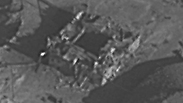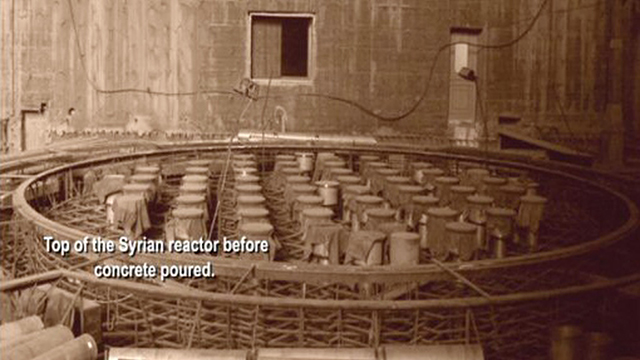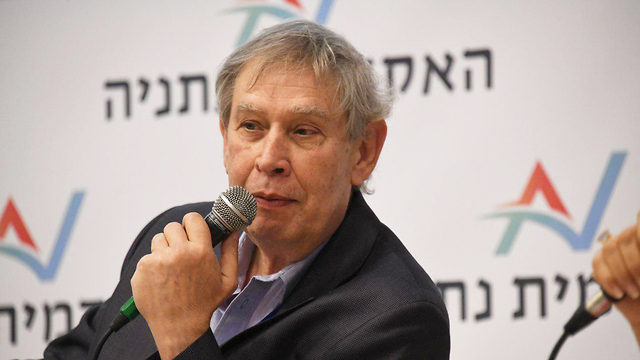

How about some modesty, gentlemen?
Op-ed: Suddenly, years after the strike on Syria's nuclear reactor, everyone claims to have been there. They all offered advice, planned, sat in the ‘pit,’ knew and said something to someone at the top. Luckily, the ego trip festival was momentarily interrupted by former Mossad chief Tamir Pardo, who reminded us that the Deir ez-Zor affair was an intelligence fiasco.
Within a single day, the strike turned into the modern version of the legendary Altalena ship. Suddenly, years later, everyone claims to have been there. They all offered advice, they all planned, they all sat in the “pit,” they all knew and said something to someone at the top. There wasn’t a single moment on Wednesday when I didn’t hear the word “I”: I said, I decided, I was at the prime minister’s home, I was sent, I was the only one who knew that everyone was wrong. It was me, me and me.
Luckily, the ego trip festival that took place here on Wednesday was momentarily interrupted by former Mossad Director Tamir Pardo, who reminded us that the emperor has no clothes. Because the Deir ez-Zor affair was, first of all, an intelligence fiasco.

The people who were in charge of the intelligence information, of providing the warning, the people who were supposed to prevent a situation in which Israel would face an existential threat—those people failed. And those were more or less the senior General Staff members who had been responsible for the colossal “success” in the Second Lebanon War, under the same prime minister.
Wednesday’s show was an opportunity for all those who weren’t particularly flattered by the Lebanon war’s legal and professional commissions of inquiry to rehabilitate themselves while receiving a share of the credit cake.
The State of Israel invested a fortune in intelligence, agents, satellites. Every Syrian division was surveyed microscopically. But they knew nothing about a nuclear project that was being built in Syria for six years, with external aid.
Today, everyone says that they knew, they suspected, they started checking in 2004. Nonsense. They accidentally stumbled upon North Koreans. If it wasn’t for the Mossad’s intelligence division, which executed a series of operations which were mostly unsuccessful, and managed to bring the golden piece of information at the very last moment, we would be dealing with a Syrian nuclear reactor today.
So exercise some modesty, gentlemen—the politicians, the retired generals, the deputies and the rest of the people who were in on the secret and are now devouring the credit.
Censorship played an instrumental role in this story. When an appeal was made to the High Court of Justice about two years ago to release interviews that former Prime Minister Ehud Olmert and late Mossad Director Meir Dagan had given to Channel 10, the Military Censor faced a dilemma. The High Court agreed to keep the gag order in place, but recommended looking into the possibility of clearing some parts of the affair for publication.
The military censorship took its time, and when the officials in charge of confidentiality in the security systems asserted that there was no longer a threat in the affair’s publication, it was decided in November 2017 to clear it for publication. The implementation of this decision was postponed too under different excuses, primarily operational events in the north which the publication might have exacerbated. Olmert’s book waited for an implementation of the decision too.
Contrary to claims made by Knesset members, secrets related to the operation which the defense establishment wishes to keep confidential have not been revealed so far, but the whole affair did inflict damage on the Israeli society.
Defense Minister Avigdor Lieberman, currently on a trip to Africa, said Wednesday that he regrets letting the censorship release the story. He’s right. He had been thinking in terms of deterrence against the Iranians and in terms of morale ahead of the State of Israel’s 70th Independence Day celebrations. He just failed to consider the fact that Israel, as late legendary Air Force Commander Benny Peled once defined it, isn’t a state yet but a small remote Eastern European town. It’s only in a shtetl that an event with such important national, operational and deterrence implications can turn into an opportunity to settle small scores and express so much hatred.
















